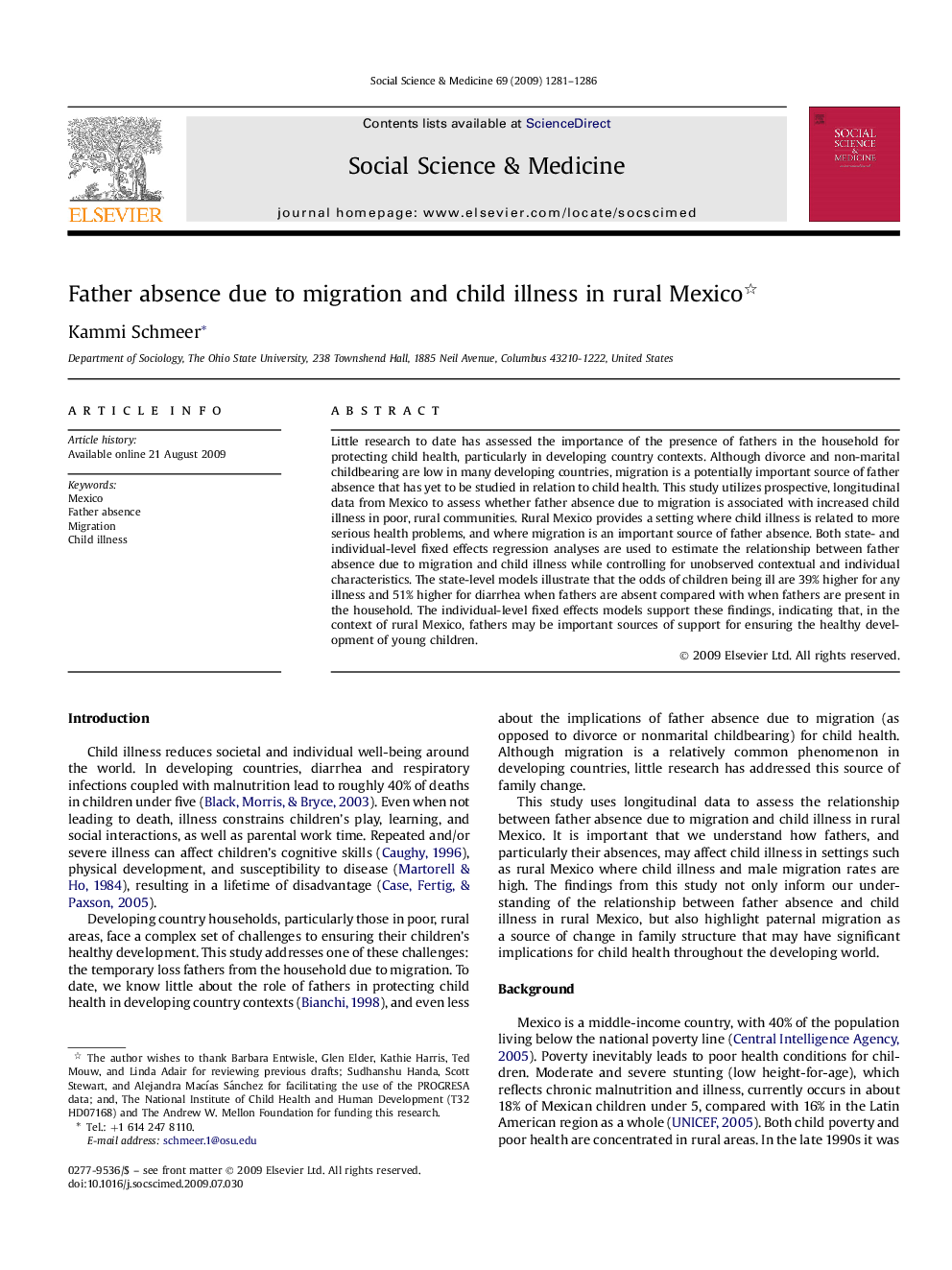| Article ID | Journal | Published Year | Pages | File Type |
|---|---|---|---|---|
| 10472083 | Social Science & Medicine | 2009 | 6 Pages |
Abstract
Little research to date has assessed the importance of the presence of fathers in the household for protecting child health, particularly in developing country contexts. Although divorce and non-marital childbearing are low in many developing countries, migration is a potentially important source of father absence that has yet to be studied in relation to child health. This study utilizes prospective, longitudinal data from Mexico to assess whether father absence due to migration is associated with increased child illness in poor, rural communities. Rural Mexico provides a setting where child illness is related to more serious health problems, and where migration is an important source of father absence. Both state- and individual-level fixed effects regression analyses are used to estimate the relationship between father absence due to migration and child illness while controlling for unobserved contextual and individual characteristics. The state-level models illustrate that the odds of children being ill are 39% higher for any illness and 51% higher for diarrhea when fathers are absent compared with when fathers are present in the household. The individual-level fixed effects models support these findings, indicating that, in the context of rural Mexico, fathers may be important sources of support for ensuring the healthy development of young children.
Keywords
Related Topics
Health Sciences
Medicine and Dentistry
Public Health and Health Policy
Authors
Kammi Schmeer,
